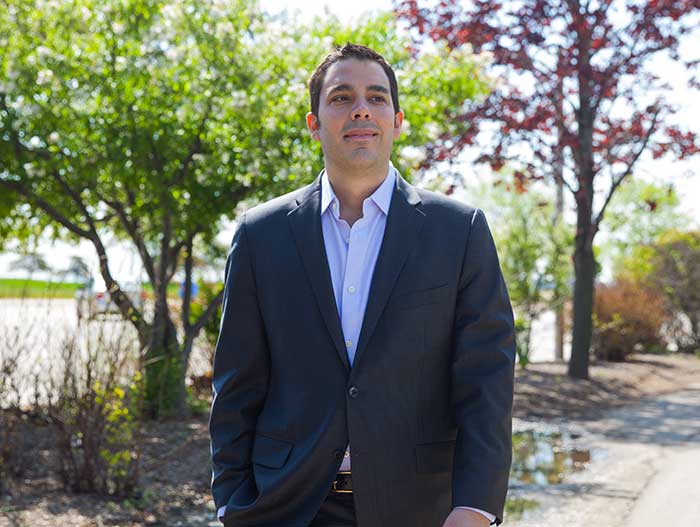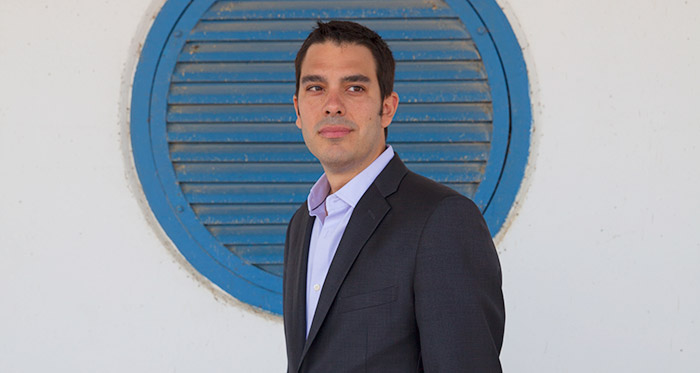Advising with a wealth of knowledge

Anthony DeRose, MBA, J.D., CPA • Chicago, IL
DeRose Financial Planning Group • Lincoln Financial Advisors
Read full biography below
My background has really helped to prepare me for my life as a financial advisor. My experience in the areas you mentioned has given me the ability to see the challenges that arise in our business from many different sides. We often work with multiple generations within a family, so an understanding of the legal, tax, and accounting issues related to planning is invaluable.
My prior experience was also very analytical and quantitative in nature, and that is helpful when evaluating investment and retirement distribution strategies for clients. I have become deeply involved with our investment management process and analyzing various portfolio options for clients. My knowledge of financial analysis, corporate finance, and investment theory is a big plus in that area.
I think I have a deep appreciation of what it takes to develop solutions that will work hard for clients—whether they involve applying my personal expertise or working with third-party partners.


My investment philosophy for client portfolios involves a blend of passive and active investment portfolio allocations. What we use for any particular individual really depends on their personal financial circumstances and objectives, their age and family considerations, and how much risk they can take on in light of their assets, distribution needs, and risk profile.
These factors determine many things when it comes to structuring a client’s investments, including how we view the allocation between passive and active investments. We believe in both approaches, but the mix can vary widely for each client portfolio. The key is to employ a level of risk management within the overall portfolio that is consistent with a client’s needs, personality, and their overall return objectives in order to make their plan work effectively.
To generalize, active or tactical strategies probably play more of a role for our clients who are nearing retirement or are in retirement. These types of strategies allow someone who has a need for a relatively higher degree of risk management to take part in equity market gains, while offering some downside protection.
Many third-party managers are available for consideration on the platforms that our firm uses. We believe in affiliating with highly accomplished investment managers and letting them use their expertise to do what they do best. I conduct quite a bit of due diligence on specific managers when assessing what might be appropriate for a specific client. If a manager’s strategies perform in line with the objectives they have established, we will likely use that manager for clients with complementary profiles and needs.

Let’s start with the most obvious one: When it comes to selecting third-party managers, we start with those who have passed Lincoln’s vetting process. We have a terrific relationship with Lincoln, and they help us out in many ways. Their case managers are a tremendous asset in the planning process.
From there, I look at the overall structure and history of a firm. How long have they been in business? Do they offer a broad array of strategies, or do they specialize in one area? Do they have a robust customer support system in place? Those types of big-picture questions are an important place to start before really drilling down. Then I consider the performance history of strategies that I am interested in—but not just raw performance. I look at Sharpe ratios to consider the risk/return relationships, standard deviation, and upside/downside capture. One can apply any number of technical tools, but it’s important to get a good sense of historical performance along a number of risk-management measures and to make the right assessments for client portfolios. Transparency and having accessible data are very important.
Our primary discussion revolves around their overall financial plan first, and the investment policy statement flows from that. Once clients have worked through the planning process with us, they come to develop a strong level of trust and confidence in our recommendations. That also applies to the investment plan. I want clients to thoroughly understand our recommendations and the expectations they can have for their investment plan in terms of risk and reward. That is critical.
Some clients are more interested in the technical aspects than others, so we have to be prepared to explain the approach at the level a client is most comfortable with. The key is to help them understand the concepts of diversification, risk management, their personal risk profile, and that these are managed accounts. While we cannot guarantee they will sidestep all losses in a bear market, we think they will be far better off with a managed approach than with passive or indexed investing over the long term. This approach has worked well for our firm.
 Anthony DeRose is an associate financial planner at DeRose Financial Planning Group (FPG), located in Chicago, Illinois. DeRose FPG has been serving the community for three generations—starting in 1958, when Ronald Sempetrean, Mr. DeRose’s grandfather, started the firm. Mr. DeRose’s mother, Karen DeRose, serves as the firm’s managing partner. He joined the firm in 2012.
Anthony DeRose is an associate financial planner at DeRose Financial Planning Group (FPG), located in Chicago, Illinois. DeRose FPG has been serving the community for three generations—starting in 1958, when Ronald Sempetrean, Mr. DeRose’s grandfather, started the firm. Mr. DeRose’s mother, Karen DeRose, serves as the firm’s managing partner. He joined the firm in 2012.
“I grew up in this business, and I have a truly great mentor who has taught me the value of financial planning. And now I get to see that value every day in the faces of our clients,” says Mr. DeRose.
DeRose FPG offers financial planning and investment services to individuals and businesses. The firm places special emphasis on multigenerational wealth planning, working to address both a family’s overall planning needs and the unique objectives of each individual within the family.
Mr. DeRose completed his undergraduate studies in accounting and international studies at Indiana University, where he also earned an MBA in accounting with a concentration in financial analysis. He went on to law school at the University of Illinois College of Law, graduating magna cum laude. After law school, Mr. DeRose joined tax and consulting firm Deloitte, where he focused on international taxation. Mr. DeRose is a registered CPA.
Mr. DeRose was married in June. “Holly and I were thrilled to be surrounded by friends and family at our beautiful beachfront ceremony in Playa del Carmen, Mexico.” He pursues many athletic endeavors and enjoys scuba diving, “whenever I can find the opportunity.” He is also an avid runner who has completed marathons in the U.S. and abroad. He combines his love of sports and service by staying involved with the Challenged Athletes Foundation, which provides support for athletes with disabilities.
Disclosure: Anthony DeRose is a registered representative of Lincoln Financial Advisors Corp. Securities and advisory services offered through Lincoln Financial Advisors Corp., a broker-dealer (Member SIPC) and registered investment advisor. Insurance offered through Lincoln affiliates and other fine companies. DeRose Financial Planning Group is not an affiliate of Lincoln Financial Advisors Corporation. CRN-1546757-071416
Photography by Brett Kramer
